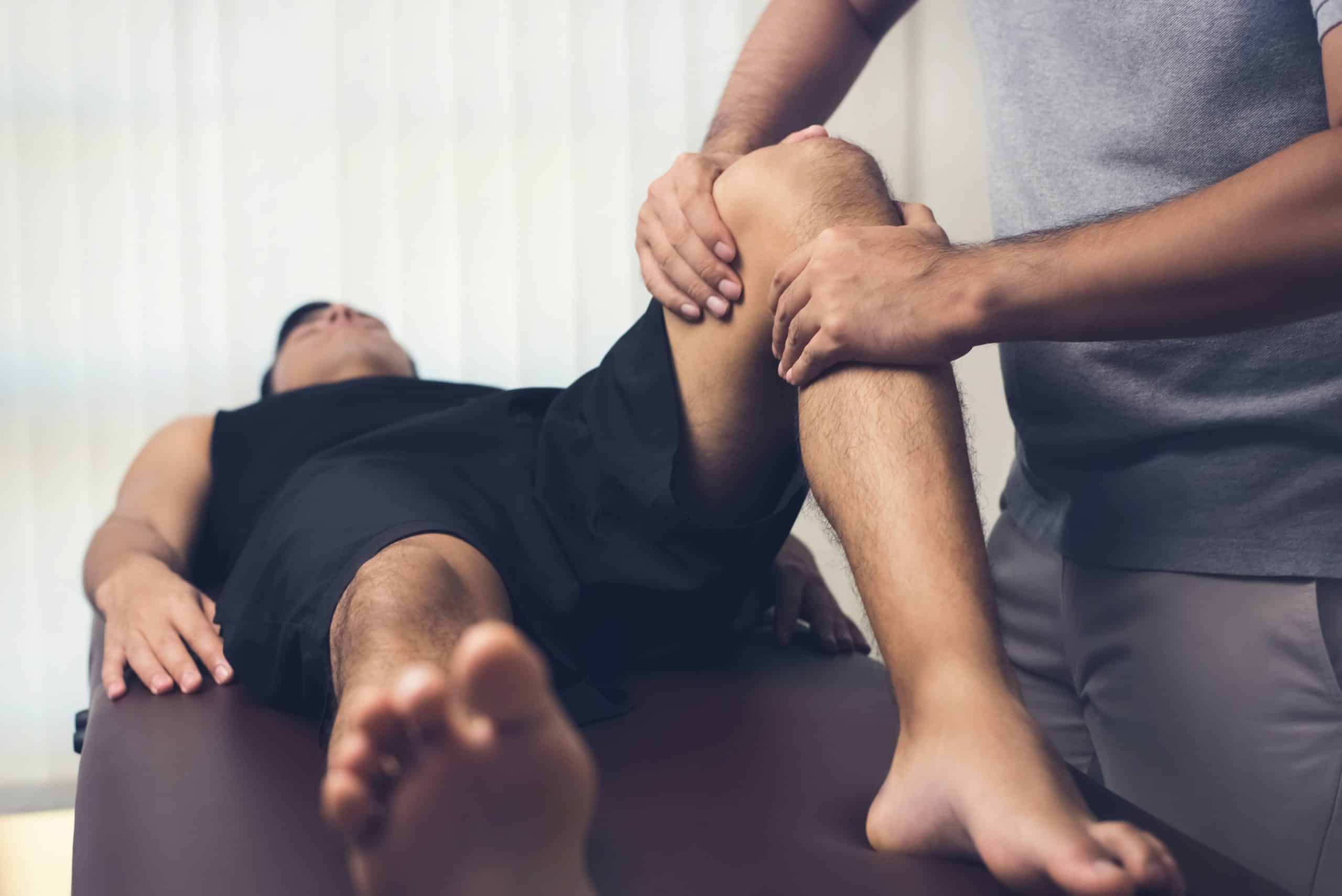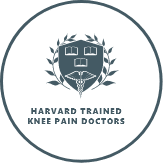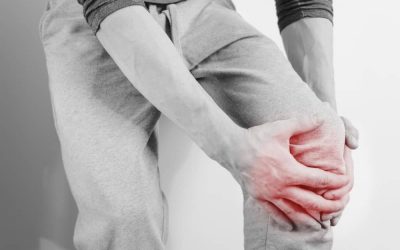Knee Pain Treatment: What to Expect and What to Avoid
If you’re reading this article, chances are you or someone you know is experiencing knee pain, and you’re seeking answers on how to effectively manage and treat it. At New York Knee Pain Doctor, led by board-certified interventional pain doctors, we understand the impact knee pain can have on your daily life. We are committed to offering minimally invasive pain treatments, diagnosing the root cause of the problem, and providing comprehensive care without resorting to opioids or surgeries. In this article, we explore various aspects of knee pain treatment, including what to expect and what to avoid.
Initial Assessment and Diagnosis
At New York Knee Pain Doctor, we place utmost importance on the initial assessment. Our interventional pain specialists leave no stone unturned in their pursuit of uncovering the root cause of your knee pain, ensuring your treatment plan is tailored to your unique needs.
Comprehensive Physical Examination
The first step is a comprehensive physical examination of your knee joint. This hands-on assessment is a critical component of the diagnosis and serves several essential purposes:
- Visual Inspection: Our experts look for signs of injury or inflammation around the knee. Swelling, redness, and deformities are among the visual cues they look for.
- Palpation: By gently feeling and pressing around the knee joint, our knee pain doctors can identify areas of tenderness, pain, or unusual sensations.
- Range of Motion Assessment: Evaluating your knee’s range of motion by asking you to move your knees in certain ways is essential. Limited mobility or difficulty moving your knee in certain directions may indicate specific issues such as ligament damage or joint stiffness.
Advanced Imaging Studies
While the physical examination is invaluable, it doesn’t provide a complete picture of what’s happening inside your knee joint. To gain deeper insights and confirm or refine our initial impressions, we may recommend advanced imaging studies, including:
- X-Rays: X-ray imaging is excellent for assessing the bones in and around the knee joint. It can reveal fractures, signs of arthritis, and abnormalities in bone structure. X-rays are especially useful for ruling out skeletal issues that may contribute to your knee pain.
- Magnetic Resonance Imaging (MRI): MRI scans offer a detailed view of the soft tissues in and around the knee joint, such as ligaments, tendons, cartilage, and muscles. This is incredibly effective at identifying structural abnormalities, tears, and inflammation.
- Computed Tomography (CT) Scans: CT scans provide a cross-sectional view of the knee joint, offering precise details about the bony structures and their relationship to one another. This is particularly useful in complex cases.
Patient History
In addition to the physical examination and imaging studies, your medical history plays a pivotal role in our diagnostic process. We will ask you to describe your knee pain in detail, including its location, severity, duration, and any factors that exacerbate or alleviate it. Past injuries and surgeries, even if seemingly unrelated, can have a significant impact on your current knee condition. We’ll thoroughly review your medical records to uncover any pertinent history.
Your daily activities, exercise routines, occupation, and hobbies are all factors that can contribute to knee pain. We’ll ask about your lifestyle to identify any potential triggers. Finally, certain medical conditions, such as diabetes or autoimmune diseases, may have implications for your knee health, so we’ll ask questions about your general health and underlying diseases.
Non-Invasive Approaches to Knee Pain Treatment
At New York Knee Pain Doctor, our commitment to your well-being extends to offering a range of non-invasive treatment options for knee pain. We understand that not all knee pain requires surgical intervention or prescription medications. When possible, we start your treatment with conservative, non-invasive knee pain treatments.

Sick of your Knee Pain?
Book an Appointment!
We offer free insurance verification! Fill out the form and expect a call from one of our agents:
Physical Therapy
Physical therapy focuses on strengthening the muscles around the knee joint, improving joint stability, and enhancing mobility. Our experienced physical therapists design a tailored exercise program based on your specific condition and goals. These exercises may include stretching, strength training, and balance exercises. Physical therapists are skilled in various pain-relief techniques, such as manual therapy, ultrasound, and electrical stimulation. They understand your condition and curate personalized plans to protect and strengthen your knees.
RICE Protocol
The RICE protocol is a go-to method for managing minor knee injuries and acute flare-ups. This acronym stands for Rest, Ice, Compression, and Elevation. Here’s how each component works:
- Rest: Give your knee time to heal by avoiding activities that may worsen your condition.
- Ice: Apply ice packs to the affected area to reduce swelling, inflammation, and pain. It’s best to use an ice pack wrapped in a cloth for about 15-20 minutes at a time, several times a day.
- Compression: Wearing a compressive bandage around your knee can provide support and help minimize swelling. Make sure not to wrap it too tightly, as this can impede circulation.
- Elevation: Elevating your leg, so your knee is above the level of your heart, can help reduce swelling and promote healing. Use pillows or cushions to support your leg comfortably.
Medication Management
In some cases, over-the-counter or prescription medications may be necessary to manage pain and inflammation. However, we prioritize non-opioid options to minimize the risk of addiction and adverse side effects. Common medications include:
- Non-Steroidal Anti-Inflammatory Drugs (NSAIDs): NSAIDs like ibuprofen and naproxen can help reduce pain and inflammation when used as directed.
- Topical Analgesics: These creams or patches can provide localized pain relief and are particularly useful for targeting knee pain.

Find Your Nearest Knee Pain Treatment Center
Our Manhattan NY knee pain clinic is conveniently located on 290 Madison Avenue Suite 203
Minimally Invasive Interventions
When non-invasive treatments do not provide the desired relief from knee pain, or when more specific interventions are required to address the underlying causes, New York Knee Pain Doctor offers a range of minimally invasive procedures. These interventions are performed by our skilled interventional pain doctors and are designed to provide targeted relief while minimizing discomfort and recovery time.
Corticosteroid Injections
Corticosteroid injections are a common minimally invasive treatment for knee pain. These injections deliver a potent anti-inflammatory medication directly into the knee joint, targeting inflammation and reducing pain. By providing swift relief, corticosteroid injections can improve mobility and alleviate discomfort. Precise placement of the injection is ensured through advanced imaging techniques. The effectiveness of corticosteroid injections can last for weeks to months, making them a valuable option in the arsenal of knee pain treatments.
Hyaluronic Acid Injections
Hyaluronic acid injections, also known as viscosupplementation, are a minimally invasive treatment option, especially beneficial for those with knee osteoarthritis. This procedure involves injecting a gel-like substance directly into the knee joint. Hyaluronic acid acts as a lubricant and shock absorber, improving joint function and reducing pain. It can also potentially slow down the progression of osteoarthritis by protecting the remaining cartilage. The relief provided by hyaluronic acid injections can last several months.
Platelet-Rich Plasma (PRP) Therapy
PRP (Platelet-Rich Plasma) therapy is a cutting-edge, minimally invasive procedure used to address knee pain. In this treatment, a small sample of the patient’s blood is processed to concentrate platelets, growth factors, and healing elements. This platelet-rich plasma is then injected into the knee joint, stimulating tissue regeneration and reducing inflammation. PRP therapy harnesses the body’s natural healing abilities and carries a lower risk of adverse reactions since it uses the patient’s own blood components.
Nerve Blocks
Nerve blocks are a minimally invasive approach to managing knee pain. In this procedure, a local anesthetic or anti-inflammatory medication is injected directly into specific nerves responsible for transmitting pain signals from the knee. While nerve blocks provide temporary relief, they are valuable for diagnostic purposes, helping confirm the source of knee pain. Guided by imaging, these injections are precisely administered, temporarily numbing the nerves, and aiding in the identification of the pain’s origin.
Radiofrequency Ablation
Radiofrequency ablation is a minimally invasive procedure used to alleviate knee pain. It operates on the principle of using radiofrequency energy to generate heat within specific nerve tissues responsible for transmitting pain signals from the knee joint. This heat effectively “turns off” the pain signals, providing long-lasting pain relief without the need for surgery. The procedure is guided by advanced imaging technology, ensuring precise targeting of the nerves contributing to knee pain, and typically results in minimal discomfort for patients.
What to Avoid During Knee Pain Treatment:
- Ignoring Pain: Pain is your body’s way of signaling that something is wrong. Ignoring persistent knee pain can lead to further damage and complications.
- Excessive Rest: While rest is crucial, excessive rest can lead to muscle weakness and joint stiffness. Balance rest with targeted physical therapy to maintain joint function.
- Overuse: On the flip side, overusing your knee joint can worsen pain and lead to more significant injuries. Avoid activities that exacerbate your symptoms.
- Wearing Inadequate Footwear: The shoes you wear can impact your knee health. Avoid shoes with poor arch support or worn-out soles, as they can contribute to knee discomfort.
- Delaying Treatment: Procrastinating in seeking medical care can allow your condition to worsen. Early intervention often leads to better outcomes and faster recovery.
Visit New York Knee Pain Doctor
Knee pain can significantly impact your quality of life, but with the right approach to treatment and care, you can find relief and regain your mobility. At New York Knee Pain Doctor, our board-certified interventional pain doctors are dedicated to diagnosing the root cause of your knee pain and providing effective, minimally invasive treatments. You can find our knee pain doctor at 290 Madison Ave Suite 202 in Midtown Manhattan or 156 William St, 3rd Floor in FiDi.
Remember to avoid practices that may worsen your condition and prioritize post-treatment care and rehabilitation. With patience and persistence, you can look forward to a future free from chronic knee pain. Contact us to schedule your appointment.
FEATURED POSTS BY PAIN DOCTORS
The Benefits of Knee Pain Treatment for Athletes
The Benefits of Knee Pain Treatment for AthletesAre you an athlete struggling with knee pain, desperately searching for relief and a way to get back to your peak performance? At New York Knee Pain Doctor, we understand the unique challenges athletes face when dealing...
What to Do After Knee Pain Treatment: A Recovery Guide
What to Do After Knee Pain Treatment: A Recovery GuideIf you've recently undergone knee pain treatment, you're likely eager to regain full mobility and get back to your daily activities. At New York Knee Pain Doctor, we understand the importance of a smooth and...
How to Choose the Right Knee Pain Doctor for You
How to Choose the Right Knee Pain Doctor for YouIf you are suffering from chronic knee pain, you understand how debilitating it can be. Knee pain can significantly affect your quality of life, making even simple tasks like bending down or climbing up or down the...
Schedule a Free Knee Pain Consultation Today
Schedule a Free Knee Pain Consultation TodayAre you suffering from chronic knee pain, wondering about your treatment options, and seeking pain relief? Look no further than New York Knee Pain Doctor. We diagnose and treat the root cause of your knee pain without...
Meet Our Team of Knee Pain Specialists
KNOW OUR TEAM OF HARVARD TRAINED KNEE SPECIALISTS

Knee Pain Doctor in New York
Dr. Michael Nguyen
Dr. Michael is available for Knee Pain treatment consultations in Manhattan, New York.

Knee Pain Doctor in New Jersey
Dr. George Hanna
Dr. Hanna is available for Knee Pain treatment consultations in Manhattan, New York.

Knee Pain Doctor in New York
Dr. Shane Volney
Dr. Volney is available for Knee Pain treatment consultations in Manhattan, New York.
Keeping you safe during COVID-19
Learn about our health & safety protocol.






contact us today
Call us
Speak instantly with one of our team members; they will answer any questions you may have regarding insurance coverage, booking an appointment and our knee pain center in New York and New Jersey.
Book Online
Visit our Book Appointment page and instantly request an appointment at our Manhattan knee pain clinic. We offer Free Insurance Verification before your appointment.
Get directions
Learn how to easily get to the Knee Pain Clinic nearest you.



